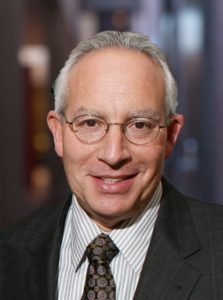WASHINGTON, D.C. – The Advisory Council on Historic Preservation (ACHP) announced today that Jordan Tannenbaum will serve as acting chair. Tannenbaum has been a member of the council since 2016, serving most recently as vice chair.
Tannenbaum assumes the role following the resignation of Sara C. Bronin, who served as chair until December 31, 2024. He will fulfill the chair’s duties until a new chairman is confirmed by the Senate and sworn in.
“Having seen firsthand the council’s vital work addressing our nation’s most pressing preservation challenges and opportunities, I am honored to serve as its acting chair,” said Tannenbaum. “I look forward to collaborating closely with its dedicated staff and my fellow council members.”
Tannenbaum, a cum laude graduate of Brandeis University and American University’s Washington College of Law, was an ACHP staff member from 1972-82. He most recently served as chief development officer of the U.S. Holocaust Memorial Museum in Washington, D.C., overseeing all of the museum’s fundraising activities.
“We are incredibly fortunate to have Jordan at the helm during this transition period,” said Reid Nelson, ACHP executive director. “Regarded as a leader and expert in historic preservation, he has been a thoughtful and trusted voice on the council, both as a member and as vice chair.”
A lawyer by training, Tannenbaum has held senior fundraising positions at the National Trust for Historic Preservation, the Wharton School of the University of Pennsylvania, Georgetown University, B’nai B’rith International, and Brandeis University. Tannenbaum served in the Judge Advocate General’s Corps of the U.S. Army Reserves from 1983-2010. He was awarded the Army’s Legion of Merit medal for his contributions to the Department of the Army’s compliance with the National Historic Preservation Act. Tannenbaum is a member of the Fairfax County History Commission, the Army Historical Foundation Board, and the Julius Rosenwald and Rosenwald Schools National Historical Park Campaign.
He teaches introductory and advanced courses on historic preservation law and Section 106 compliance for the Navy’s Civil Engineers Corps Officers School, which are open to members of all the military services as well as the Coast Guard and NOAA.
